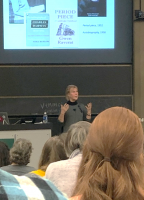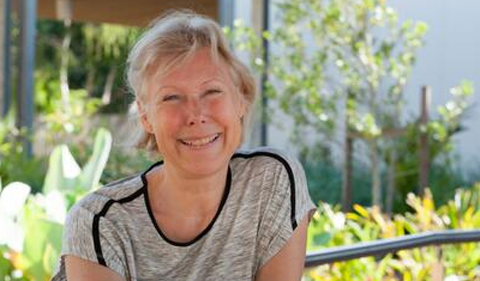by Kaitlyn Lyons
Dr. Janet Browne recently came to Ohio University to speak about on behalf of the annual Darwin Lecture sponsored by the Ohio University Center for Ecology & Evolutionary Studies (OCEES). The knowledge of Charles Darwin’s life is important in order to fully understand the Evolutionary Theory. There are various social reasons as to how Darwin came to be the person he was and to why he decided to write the book On the Origin of Species.
Browne is currently a British professor for the History of Science at Harvard University. Browne was originally a Zoology major at Trinity college of Dublin. It was not until her senior year of undergraduate study when she learned what the History of Science really entailed. Browne attended lectures on topics that helped put biology into a broader context. She pursued a master’s degree in the History of Science at Imperial College London after her undergrad. Once she came across the history of science, it felt like the only thing she really wanted to pursue.
The piece of advice Browne gives students who want a career in the History of Science is to look for courses in the history and social studies departments that will give you a wider perspective of why science takes the shape it does today.
“It is so useful as a young person who is aiming to become a leader to be able to understand or have a perspective on the way we rely so much on science, technology, and medicine,” she said.
Browne is from a generation that is currently at the point of retirement. Most people her age who are in the field of the history of science come from primarily science and math backgrounds. Nowadays, it is different in a way that more and more people are coming from backgrounds in history, social studies, and even anthropology. It is essential to look at the past of science in order to understand why it is so powerful today.
by Kaitlyn Lyons

Dr. Janet Browne speaks at the annual Darwin Lecture at Ohio University.




















Comments